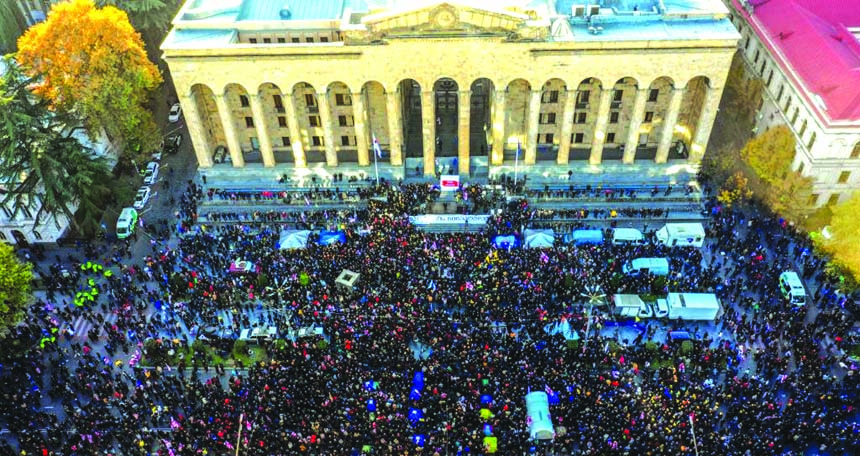
AFP, Tbilisi :
The United States and European Union expressed solidarity Monday with Georgia’s anti-government protesters who took to the streets after the ruling party backtracked on promises of electoral reforms.
In the biggest anti-government protest in years, more than 20,000 demonstrators rallied on Sunday outside the parliament building in the capital Tbilisi urging the government to resign and calling for new legislative elections.
In a joint statement, the US and EU embassies said they “recognise the deep disappointment of a wide segment of Georgian society at the failure of parliament to pass the constitutional amendments required to move to fully proportional parliamentary elections in 2020.”
“We fully support the right to peaceful assembly and freedom of expression,” the missions said.
The rally dispersed peacefully on Sunday night but entrances to the parliament building remain blocked by dozens of protesters who say no lawmakers will be allowed to pass through.
At an earlier protest on Thursday, some 10,000 people rallied in Tbilisi, vowing to press ahead with “permanent” protests until their demands for snap polls are met.
Opposition parties called for the rallies after forming a rare united front against the ruling Georgian Dream party, whose MPs last week voted down legislation to hold parliamentary elections next year under a new proportional voting system.
The opposition accused powerful oligarch and Georgian Dream leader Bidzina Ivanishvili – who is widely believed to be the man in charge in Georgia -of being behind the move.
The US and EU embassies said the failure to pass the legislation “has increased mistrust and heightened tensions between the ruling party and other political parties and civil society.”
Protesters say the ruling party unfairly benefits from the current voting system.
The Georgian Dream won nearly 77 percent of seats in the 2016 parliamentary election despite garnering only 48.7 percent of the vote.
Opposition parties at the time denounced the polls as rigged.
In power since 2012, the ruling party has seen its popularity plummet amid widespread discontent over economic stagnation and perceived backsliding on its commitment to democracy.
Critics have accused Ivanishvili of persecuting political opponents, suffocating critical media, and creating a corrupt political system where his private interests dominate government decision-making.

